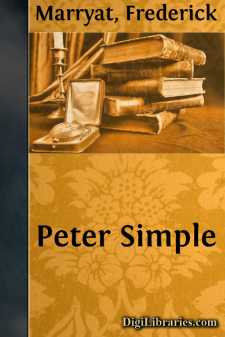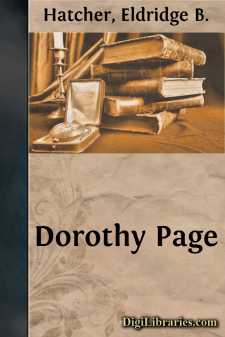Fiction
- Action & Adventure 180
- Biographical 15
- Christian 59
- Classics
- Coming of Age 5
- Contemporary Women 3
- Erotica 8
- Espionage/Intrigue 12
- Fairy Tales, Folklore & Mythology 236
- Family Life 169
- Fantasy 117
- Gay 1
- General 596
- Ghost 32
- Historical 808
- Horror 43
- Humorous 160
- Jewish 25
- Legal 4
- Medical 22
- Mystery & Detective 315
- Political 49
- Psychological 41
- Religious 64
- Romance 159
- Sagas 11
- Science Fiction 730
- Sea Stories 113
- Short Stories (single author) 537
- Sports 10
- Suspense 1
- Technological 8
- Thrillers 2
- Urban Life 31
- Visionary & Metaphysical 1
- War & Military 173
- Westerns 199
Classics Books
Sort by:
CHAPTER I We get under way. Polynesia's busiest corner. Our ship's company. A patriotic celebration rudely interrupted. In the grip of the elements. Necessary repairs. A night vigil. Land ho! "Is she tight?" asked Captain Ezra Triplett. (We were speaking of my yawl, the Kawa). "As tight as a corset," was my reply. "Good. I'll go." In this short interview I...
more...
The great advantage of being the fool of the family—My destiny is decided, and I am consigned to a stockbroker as part of his Majesty’s sea-stock—Unfortunately for me Mr Handycock is a bear, and I get very little dinner. If I cannot narrate a life of adventurous and daring exploits, fortunately I have no heavy crimes to confess: and, if I do not rise in the estimation of the reader for acts of...
more...
The success of Verrian did not come early, and it did not come easily. He had been trying a long time to get his work into the best magazines, and when he had won the favor of the editors, whose interest he had perhaps had from the beginning, it might be said that they began to accept his work from their consciences, because in its way it was so good that they could not justly refuse it. The particular...
more...
by:
Margaret Penrose
CHAPTER I NEWS With a crunching of the small stones in the gravel drive, the big car swung around to the side entrance of the house, and came to a stop, with a whining, screeching and, generally protesting sound of the brake-bands. A girl, bronzed by the summer sun, let her gloved hands fall from the steering wheel, for she had driven fast, and was tired. The motor ceased its humming, and, with a...
more...
by:
Charles Garvice
CHAPTER 1 "Until this moment I have never fully realised how great an ass a man can be. When I think that this morning I scurried through what might have been a decent breakfast, left my comfortable diggings, and was cooped up in a train for seven hours, that I am now driving in a pelting rain through, so far as I can see for the mist, what appears to be a howling wilderness, I ask myself if I am...
more...
CHAPTER I. DOROTHY ARRIVES. "You may see her tonight," said Mrs. Sterling to her son Gilbert. "When does she arrive?" "At six-twenty this afternoon. They say, son, she is beautiful." "From what point of the compass does the lovely paragon come?" asked Sterling with a smile. "She has just graduated from some college in the North. Her father and mother went to be with...
more...
Whenthe long grey lines came flooding upon Paris in the plain,We stood and drank of the last free air we never could taste again:They had led us back from the lost battle, to halt we knew not whereAnd stilled us; and our gaping guns were dumb with our despair.The grey tribes flowed for ever from the infinite lifeless landsAnd a Norman to a Breton spoke, his chin upon his hands.“There was an end to...
more...
CHAPTER I. "For that mercy," said Gorman, "you may thank with brief thanksgiving whatever gods there be." We were discussing, for perhaps the twentieth time, the case of poor Ascher. Gorman had reminded me, as he often does, that I am incapable of understanding Ascher or entering into his feelings, because I am a man of no country and therefore know nothing of the emotion of patriotism....
more...
1. I meditate in my heart on that K.rish.na on whose left side is seated Râdhâ, on whose breast reclines Šrî (Lakshmî), and who enjoyed sport (with them) in V.rindâvana. 2. I, Sahajânanda.h Svâmî (afterwards called Svâmî-Nârâya.na), living at V.rittâlaya, write this Letter of instructions (or Book of directions) to all my followers scattered throughout various countries. 3. Let the two...
more...
by:
J. W. Keyworth
CHAPTER I. In a small house, in a back street, in the large manufacturing town of Cottonborough, the young wife of “Cobbler” Horn lay dying. It was the dusk of a wild evening in early winter; and the cruel cough, which could be heard every now and then, in the lulls of the wind, from the room upstairs, gave deepening emphasis to the sad fact that the youthful wife and mother—for such also she...
more...











